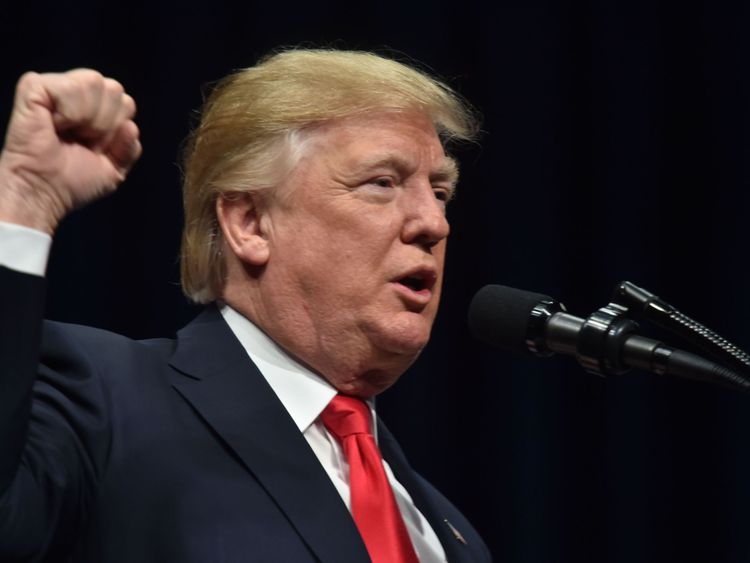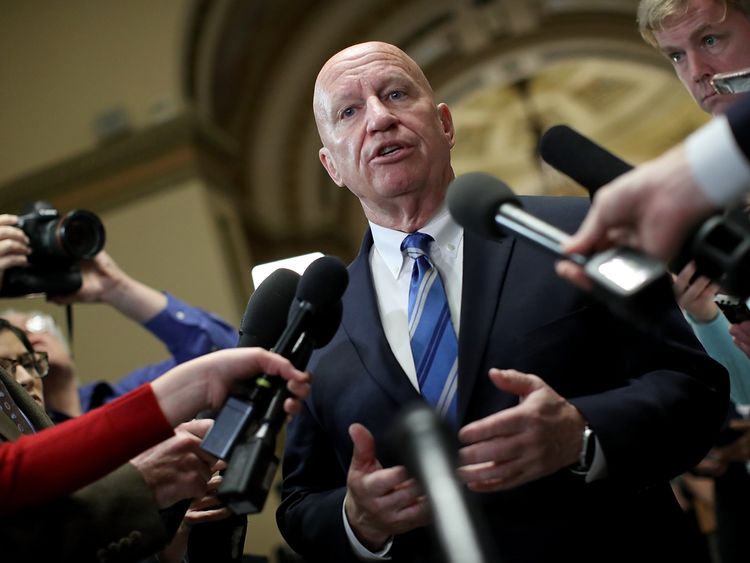Donald Trump's major tax overhaul – accused of mainly benefiting the rich – looks likely to pass into law after two Republican senators were persuaded to give it their backing.
It will be the biggest reshaping of tax in the US for three decades, and finally give the President a major legislative victory.
Estimated to add $1.46tn (£1.1tn) to the nation's $20tn (£15tn) debt over the next decade, the measures include cutting corporation tax from 35% to 21% and trimming the rate for top earners from 39.6% to 37%.
Florida senator Marco Rubio, one of two Republicans who had refused to vote for the plans, was won over after he got his demand for a doubling of child tax credit to $2,000 – a move designed to help poorer families.
Tennessee's Bob Corker – the only Senate Republican to vote against the initial proposal – was also persuaded on Friday to back the changes.
He admitted it was "far from perfect" but called it a "once-in-a-generation opportunity" to help US businesses.
"I think we are better off with it," he said. "I realise this is a bet on our country's enterprising spirit, and that is a bet I am willing to make."
It is crucial that Republicans in the Senate fall in line and back the plans because they only hold a 51-49 majority there.

The final plan is a combination of proposals by Republicans in the Senate and House of Representatives.
Democrats are against the changes, with senator Bernie Sanders calling it "a moral and economic obscenity".
The unsuccessful 2016 presidential candidate said: "It is a gift to wealthy Republican campaign contributors and an insult to the working families of our country."
Republicans say the tax cuts are vital to speed up growth in the US economy.
"Now the American people are closer to a plan that will deliver higher wages, lower taxes, a simpler system, and a stronger American economy," said House of Representatives Republican leader Kevin McCarthy.

However, many independent analysts say the changes will disproportionately benefit businesses and the wealthy over middle and lower income families.
President Trump wants to sign off the bill in time for Christmas and secure his first major legislative victory since taking power, after his promised healthcare overhaul failed to get backing.
More from Donald Trump
"I think we are going to be in a position to pass something as early as next week, which will be monumental," said the President.
If next week's vote goes to plan, the changes would take effect for 2018 taxes.
The post Trump's controversial tax cut plan set for victory appeared first on News Wire Now.











